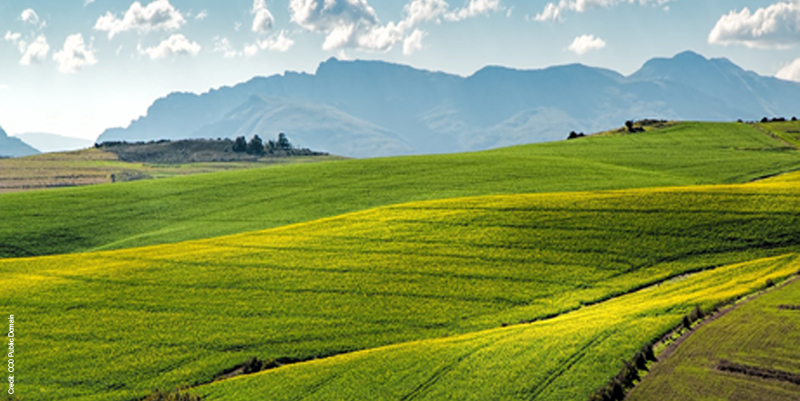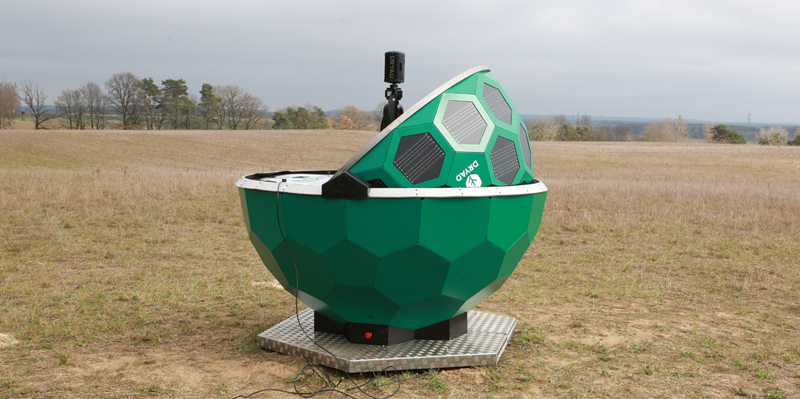Microsoft announces 21 winners of the Virtual Earth and SensorMap Request for Proposal programs with funding totaling US$1.1 million to help academic researchers innovate in advanced mapping and location-based search technologies.
-Courtesy Microsoft-
Imagine being able to visit any location in the world from the comfort of your computer in vivid detail â not just from geography and topography, aspects already currently available in mapping programs, but to monitor the actual current environmental conditions at a point of interest. This is just one of the scenarios being explored in academic research enabled by Microsoft's SensorMap and Virtual Earth Request for Proposal (RFP) programs. Such technology also has the potential, for example, to allow climatologists and other scientists to examine data over the long-term to track pollution and climate changes. Microsoft today announced 21 winners of the Virtual Earth and SensorMap RFP programs, with unrestricted funding totaling US$1.1 million. The scenarios described above are examples of the projects that the winning academic researchers are already working on. The awards are made for one year, to bolster existing academic research programs or seed entirely new ones. "Being able to map real-time data happening in the physical world onto a computer will have tremendous societal impact â observing weather patterns, calculating soil erosion, sensing pollution, the applications seem endless," says Stewart Tansley, a program manager in the External Research & Programs group in Microsoft Research. "The ability to collect massive amounts of real-time data and apply it to the world we live in by visualizing it on a 'live' map is very exciting. Any one of the RFP projects has the potential to change the way people live, commute to work or build a structure, as well as empower scientists in their increasingly important environmental research."Understanding the vital role that academia plays, the External Research & Programs group at Microsoft collaborates with university researchers around the world, focusing on current real-world issues, cutting-edge research, challenges facing the academic ecosystem, and innovative approaches to education that prepare students for the challenges of the future. Every year, Microsoft Research publishes RFPs in specific subject areas â in 2006 alone, $4 million in software, technical resources and funding was awarded to the most promising academic researchers.When the Virtual Earth and SensorMap RFPs were first announced, they sparked worldwide interest â over the few weeks they were open for application, the Virtual Earth RFP received nearly 80 proposals from 17 countries, and SensorMap received 60 proposals from 13 countries.
Imagine being able to visit any location in the world from the comfort of your computer in vivid detail â not just from geography and topography, aspects already currently available in mapping programs, but to monitor the actual current environmental conditions at a point of interest. This is just one of the scenarios being explored in academic research enabled by Microsoft's SensorMap and Virtual Earth Request for Proposal (RFP) programs. Such technology also has the potential, for example, to allow climatologists and other scientists to examine data over the long-term to track pollution and climate changes. Microsoft today announced 21 winners of the Virtual Earth and SensorMap RFP programs, with unrestricted funding totaling US$1.1 million. The scenarios described above are examples of the projects that the winning academic researchers are already working on. The awards are made for one year, to bolster existing academic research programs or seed entirely new ones. "Being able to map real-time data happening in the physical world onto a computer will have tremendous societal impact â observing weather patterns, calculating soil erosion, sensing pollution, the applications seem endless," says Stewart Tansley, a program manager in the External Research & Programs group in Microsoft Research. "The ability to collect massive amounts of real-time data and apply it to the world we live in by visualizing it on a 'live' map is very exciting. Any one of the RFP projects has the potential to change the way people live, commute to work or build a structure, as well as empower scientists in their increasingly important environmental research."Understanding the vital role that academia plays, the External Research & Programs group at Microsoft collaborates with university researchers around the world, focusing on current real-world issues, cutting-edge research, challenges facing the academic ecosystem, and innovative approaches to education that prepare students for the challenges of the future. Every year, Microsoft Research publishes RFPs in specific subject areas â in 2006 alone, $4 million in software, technical resources and funding was awarded to the most promising academic researchers.When the Virtual Earth and SensorMap RFPs were first announced, they sparked worldwide interest â over the few weeks they were open for application, the Virtual Earth RFP received nearly 80 proposals from 17 countries, and SensorMap received 60 proposals from 13 countries.
Author: Microsoft
For more information visit:
Subscribe to our newsletter
Stay updated on the latest technology, innovation product arrivals and exciting offers to your inbox.
Newsletter

